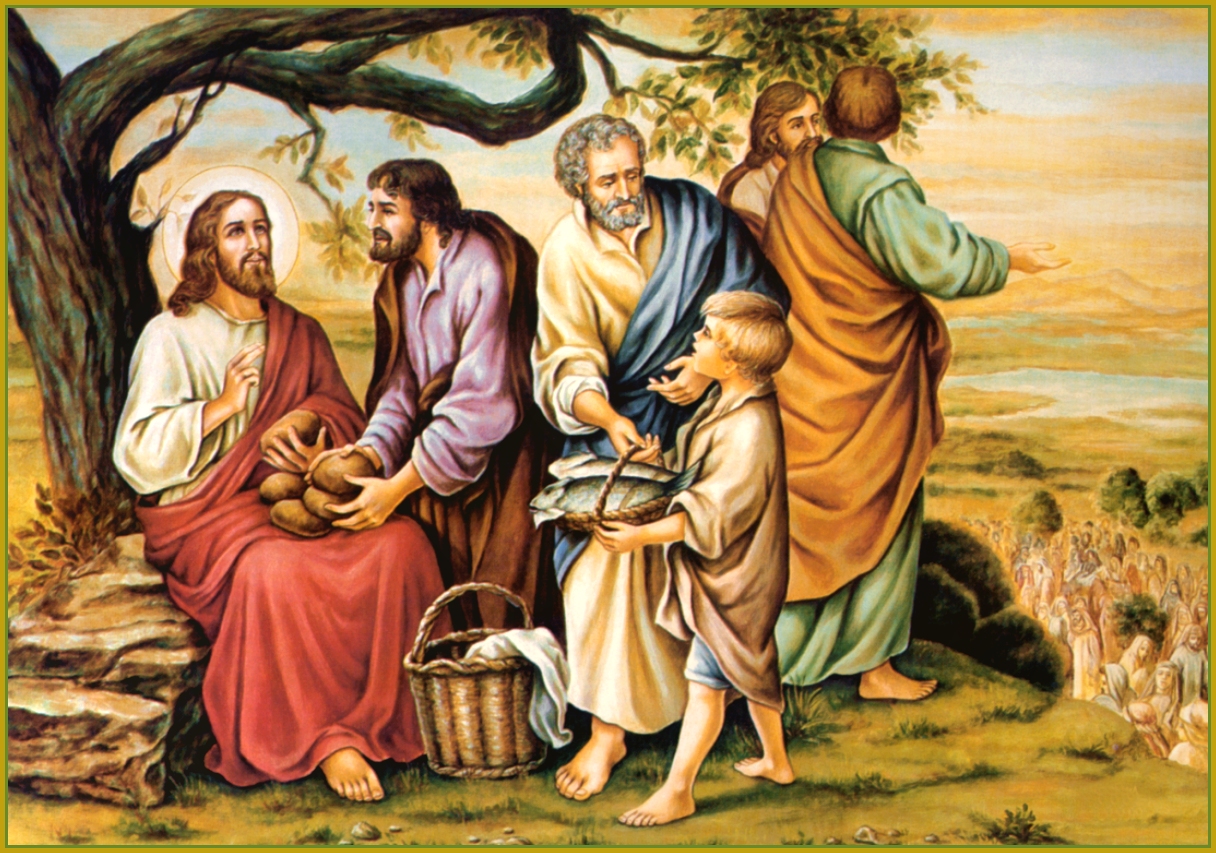

 The
Beauty
and Truth
of the
Catholic
Church Sermon
II, Sunday Part 2:
And again no commandment
brings with it such dire threats of punishment for time and eternity,
for
temporal and eternal perdition as this one. Hence Jews and Christians
place
it in the front rank of the Commandments of God. And for the same
reason
it is of the first importance in all Christian codes of law. The
captivity
of the Jews, every calamity that befell them, the destruction of the
Temple
of Jerusalem and its profanation by the heathens-----all these had been
threatened
by God to avenge the desecration of the Lord's Day. And now, my dearly beloved, has God changed in the New Law? Or has the Sabbath, the Lord's Day, become less holy because the Apostles transferred it to Sunday in memory of Christ's Resurrection, of the Descent of the Holy Ghost, and to differentiate them from the Jews? Or are the Christians, upon whom God has lavished more graces and benefits than upon the Jews, less obliged to gratitude, fidelity and adoration? Is the son of the Cross, the Christian, for whom Jesus bled upon the Cross, less obliged to live for the salvation of his soul and for the adoration and the love of God, than the bondsman of the Ancient Law, the Jew? or than the poor pagan who is deprived of the knowledge of the one true God? No, this Commandment of God, "Remember that thou keep holy the sabbath day," has a greater and holier importance for us, but its non-observance is also attended with more dreadful consequences for us. The first of these consequences is the ruin of religion not only for the individual, but also for whole nations. I shall therefore speak today of this first consequence. Jesus, assist us with Thy grace! What do we mean by religion? Religion is the bond and union of man with God. Religion is the tie that unites us with God. Now religion is not only the for individual but for all, and manifests itself in public adoration of God, in the public profession of faith, in public worship; hence the desecration of the Sunday is the destruction of religion. God Himself established the Sunday as the public sign of His covenant with men. And in fact, what has ever been the war cry of those who rebelled against God? Was it open atheism, or professed sensuality, or the robbery of the Church's patrimony? Such crudity would be revolting to the majority of men, and would give too patent an evidence of their ultimate aim. No, they inscribed on their banners what the Royal Prophet read upon them more than three thousand years ago: "Let us abolish all the festival days of God from the land" [Ps. 73 ,8]. Verily, the trend of evil is unmistakable; it does not always strike hard, but it strikes surely. As soon as a nation begins generally to desecrate the Sunday, it readily loses all knowledge and practice of religion, it offers up no prayers, it receives no Sacraments, it renders no public act of worship. Experience teaches this, and it is a fact which is patent to everybody. Now, what happens to the individual Christian who is guilty of a constant disregard of the Lord's Day? Let us begin with the children. They have learned a little catechism while they attended instructions, but if they fail to keep holy the Sunday they will forget the little they knew in a few short years. It is a matter of sad experience that many people of advanced years no longer know the Apostles' Creed. What right have we then to expect such as these to know anything about the Commandments of God, about the laws of the Church, or about the Sacraments? Yea, it is not infrequent that we meet with people who know nothing about Jesus Christ. The desecration of the Sunday is the destruction of religion in the individual. But let us assume that the adult has not forgotten the instruction which he received, but on the contrary knows all the truths of his holy religion. Even this knowledge will not suffice. If these truths are to be conducive to the salvation of the soul they must exercise a great influence on the heart and the will. We must therefore often meditate upon them, and have them frequently explained to us. The desecration of the Sunday renders this impossible, and all the influence that religion may possess, is entirely lost upon the mind and the will, but especially on the conduct of life. When will the servant, the laborer, the tradesman find time to meditate on the truths of Heaven if those who are in a position to give the example fail to do their duty? Their failure can only be ascribed to a lack of good will. For all these the desecration of the Sunday is the destruction of religion and with it of every grace and of redemption. The fact becomes all the more serious, for the sanctification of Sunday is the absolutely necessary condition of our union with God. "The sabbath," says God to Moses in Exodus 31, 16, "is an everlasting covenant between Me and the children of Israel, and a perpetual sign." Now what the Sabbath was in the Old Law, that and more is the Sunday in the New Law. Hence I shall put to each of you the same question that the persecutors put to the first Christians: "I do not ask you if you are a Christian, but I wish to know if you observe the Sunday?" From this we can see that in the sound judgment of the pagans the sanctification of the Sunday was the mark of the true Christian. The desecration of the Sunday is therefore a practical denial of the faith. There are many in our day who vaunt their Christianity and ever pretend that they are very pious Christians, but in reality they are nothing more than rebels against God. 2. I say: rebels against God. The desecration of the Sunday is an open revolt against God. And this with its dreadful consequences is a more terrible misfortune than all the lost battles of the world. Every seventh day a countless number of men of every condition in life place themselves in open rebellion against God; in their awful presumption they revolt against the most sacred Commandment of God. The church bells call to service; they invite us all to come and adore and praise the Lord; they plead with us to assist at the Unbloody Sacrifice, to be united with Jesus the Savior and the Judge of men. But deaf to every appeal are the ears of many, and everywhere and in every way we see a shameful disregard of the holiness of the day. The call of pleasure and of self-interest is stronger than the call of duty. Can there be a greater crime than this? The desecration of the Sunday is the ruin of all religion. 3. But the desecration of the Sunday is more than an open revolt against God-----it is a frank profession of atheism and of disbelief in God. And this is the truest and most hateful characteristic of the Sunday profanation. There is no religion, not even a pagan one, that is without its public act of worship. Religion is intended not for one, but for all men without exception, and unites us all with God. Hence the whole nation must take part in a public act of worship, because thereby it makes an open profession of its faith and declares that it is a religious people. All the nations of the earth have known and acknowledged this: Christian, Jews, Turks and heathens; we do not find a single exception among the nations. Public worship must, however, have its appointed time, its definite day, when all may unite in the same belief and in the same adoration -----a spectacle worthy of Heaven. God has established this day for the Christian peoples; it is the Sunday. A nation, therefore, that does not sanctify the Sunday has become more degraded than the very pagans, for it openly professes its atheism, its disbelief in God. Or do you think that a few sentimental considerations, a few pious thoughts, a few banal phrases constitute true faith and a real worship of God? If you believe in God, honor Him, adore Him, and observe His Commandments! Remember that the following is the most sacred of His mandates: "See that you keep my sabbath: because it is a sign between Me and you in your generation." The profanation of the Sunday is the destruction of religion in the individual as well as among the nations. But what do we understand by the destruction of religion? It means the dissolution of our bond with God, with Christ the Redeemer, with the Holy Ghost the Sanctifier; it means the annihilation of redemption, of grace, of Christian virtue, of faith, hope and charity; it means the blotting out of piety, morality, honesty, faith and loyalty, of obedience and of every respect for authority. The desecration of the Sunday implies rebellion against God, selfishness, brute sensuality and the slipping of the leash to all the passions. But the destruction of religion brings further evils in its train: might without right and justice, consideration without respect, constitutions without stability, laws without obedience, sacrifice without recompense, sorrows without consolation, despair, suicide, ferment and dissolution of every legitimate tie. Whence all conspirators against the established order of things inscribe on their banners: "Let us abolish all the festival days of God from the land." For the profanation of the Sunday is the ruin of religion. Look upon the condition of our public affairs, consider the menaces that the future holds for us: my language is not too severe. If I have called the child by its name, if I have endeavored to show you the true characteristics of the desecration of the Sunday with its evil consequences, I have done so with the laudable purpose of strengthening and confirming you in the faithful fulfillment of your most sacred obligation as men and as Christians. Keep ye holy the Sunday. I thank God that you are animated with the desire of doing so. Your conduct is a proof of this. One thing, however, I ask of you: do not restrict the sanctification of the Sunday to your own selves. Give your children and all those who are dependent on you an opportunity of adoring and praising God on the Lord's Day. Never render yourselves guilty of preventing them from fulfilling their sacred obligations. You know now that faith and grace and salvation depend on this. May God grant that the magnificent promises which He has attached to the faithful observance of His Day may find their accomplishment in us both in time and in eternity. May our Sunday on earth be changed to the unending Sunday in Heaven, whither we are called to adore and praise God with His Angels and His saints through a blessed eternity. Amen. www.catholictradition.org/Easter/easter36b.htm |